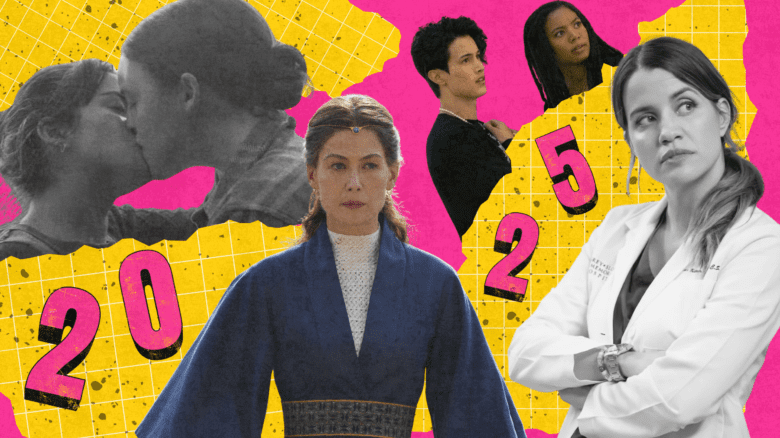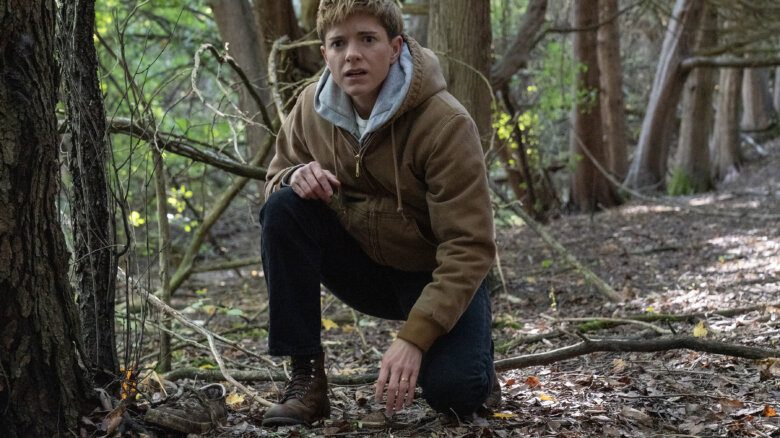Being the homosexual I am, I spend my year chasing the Oscars. In the spring, I track what Sundance releases have been acquired by big studios; in the summer, I study what’s popping at the Cannes Film Festival, which generally launches the most lauded and visible global films; in the fall, I spend a week and a half at the Toronto International Film Festival catching anything with awards buzz and in the winter, I analyze the Oscar precursors. I do all this because I love the horse race, and I love pop culture and I love actors who aren’t men. Most of all, I cherish great movies. I believe in the institution of the Academy Awards because they lend elevated, auteurish cinema from across the world an unparalleled platform in a movie market otherwise obsessed with the lowest common denominator.
But this year-long pursuit of mine can be a stressful one. Naturally, I have favourites, and in most years, a categorically bad movie pops up and threatens to steal precious Oscars from the movies that I, in all my perfect taste, have decided are more deserving of recognition. (I still have nightmares about Green Book.) It is with a great sigh of relief that I can report that this will not be one of those years.
The Oscars take place this Sunday, and precursor awards have clarified most of the races. Some have narrowed down to just two potential horses, while others appear to be completely locked up. In Best Picture, the most anticipated and difficult to predict category, the sex worker dramedy Anora has all but secured a win because of its performance in the precursors. To those nervous that Conclave, the winner of the BAFTA Best Film prize and the Screen Actors Guild Best Ensemble award, may steal the win, allow me to assuage your concerns.
Don’t worry about Best Picture
The best way to predict a Best Picture winner is by taking a careful look at the precursor awards, like the BAFTAs and SAGs, and judging a film’s precursor wins against those of Best Picture winners past. The most correlative awards to Best Picture are those given by the four major industry guilds: Screen Actors, Directors, Producers, and Writers. It is commonly accepted that a movie must win at least one of these guilds in order to win Best Picture, and for good reason: since the founding of the Producers Guild of America (PGA) Awards in 1990, no movie has won Best Picture without winning at least a DGA, PGA or WGA award. Anora has won all three, meaning that if something else were to steal Best Picture, it would be the result of an historic and catastrophic break with precedent. With this in mind, predicting another movie to win would be based almost entirely on vibes and contrarianism. The Academy is not known for doling out gold because of vibes.
When Anora won the PGA after winning the WGA and DGA, and, in my mind, locked itself in for the win, the overwhelming feeling I felt was relief. Relief that the disastrous Emilia Pérez would not steal a win, and lest we forget that scary moment where its strength seemed insurmountable. Relief that the incredible filmmaker Sean Baker, who directed and wrote and casted and edited Anora and who has been a champion of the indie movie and of the poorest of the working class throughout his career would at long last receive his well-earned flowers. (I recently watched and was floored by Tangerine, his phenomenal 2015 film about two Black trans sex workers and their misadventures in Hollywood.) And relief that a plainly great movie, one that’s dazzling and hilarious and has something important to say about sex, money, power and the American dream, will secure an eternal spot in cinematic history.
Upsets and victory laps
There are interesting races beyond Best Picture. Let’s start with the gayest one: Best Actress. Demi Moore is a firm frontrunner for her turn as the aging fitness star Elisabeth Sparkle in The Substance. She’s been cleaning up this awards season, collecting the SAG and Critics Choice Awards and, crucially, defeating her primary opponent, Anora’s Mikey Madison, at the Golden Globes. Moore is the best bet to win: her comeback narrative makes her easy to vote for (as it was for recent winners Michelle Yeoh, Brendan Fraser and Robert Downey Jr.), and her movie is likely to win Best Makeup, which often coincides with a lead acting win (in the last three years: Poor Things/Emma Stone, The Whale/Fraser and The Eyes of Tammy Faye/Jessica Chastain). Personally, I’m partial to Madison’s turn in Anora—she embodied this character, adopting a new accent and physicality and sense of humour. Madison doesn’t waste a second of screen time—every look and curl of the lip and profanity hurled adds to the richness of her film’s titular character. That being said, Moore is impeccable in The Substance. Her movie is batshit, and if she wins, it would be a victory for my favourite genre—horror—and the fierce performances it has always produced, but which have rarely received their rightful plaudits.
Madison triumphed over Moore at the BAFTAs and the Indie Spirits, stymying Moore’s runaway lead. BAFTA Best Actress winners are known for stealing Oscars from frontrunners—recent examples include Olivia Colman for The Favourite and Frances McDormand for Nomadland. And if we are assuming that Anora is winning Picture, that gives Madison another edge: Best Picture winners generally secure acting wins, although Parasite, The Shape of Water and Spotlight won the top prize without any actors coming along. I’d give Moore the edge, but don’t be shocked if Madison clinches the win. Either would be highly deserving.
That’s going to be a theme of this year’s Oscars: if the winners pan out as I expect, they will be agreeable and deserving. Kieran Culkin and Zoe Saldaña, both revered actors who turned in excellent performances in their respective films, have swept the awards season in the supporting categories and will clinch their first Oscars (though their movies are quite disparate in quality). In the Best Actor category, it seems that Adrien Brody will win a second Oscar for his titanic performance in the three-and-a-half-hour epic The Brutalist, though Timothée Chalamet could spoil for his Bob Dylan biopic A Complete Unknown (and if that does pan out, Chalamet would become the youngest Best Actor, beating the record Brody himself set when he won for The Pianist). I can’t say I’m excited about any of these people winning (I’d personally go for Sebastian Stan in Actor, Ariana Grande in Supporting Actress and Jeremy Strong in Supporting Actor), but when they collect their awards, I will nod and politely applaud and then never think about them again.
My favourite thing about Oscars night isn’t the polite nodding—it’s the upsets. Know that if any of these predictions don’t pan out, I’ll be screaming at the top of my lungs in one of my friends’ living rooms. There’s a thrilling prospect this year, an upset that could topple this year’s Oscar villain, Emilia Pérez, which has been sufficiently derided both in this publication and others for its reliance on bigoted tropes and its baffling and obtuse plotline. Though the controversies circling both the movie and its star Karla Sofía Gascón have tanked its chances in the screenplay, director, picture and actress categories, it does seem poised to take home three Oscars: Supporting Actress, Song and International Feature. I’d say Saldaña and her number “El Mal” will almost certainly win, but it’s competing in International Feature with fellow Best Picture nominee I’m Still Here.
This is the first time in Oscar history that two movies have been nominated for both Best International Feature and Best Picture in the same year. This is a great stride forward—the Academy has long overlooked global cinema in its nominations, and while Emilia Pérez has felt like an unstoppable Oscar juggernaut since it stormed Cannes back in the summer, the Brazilian docudrama I’m Still Here rode a last-minute wave of online support and ravenous critical acclaim to a Best Picture and Best Actress nomination. Where Emilia Pérez is loathed, I’m Still Here is beloved. Historically, if there’s a Picture nominee in International Feature, that movie has triumphed. If I’m Still Here can rob Emilia Pérez of a trophy, I’d emit a gay noise loud enough to reach the Dolby Theatre.


 Why you can trust Xtra
Why you can trust Xtra


